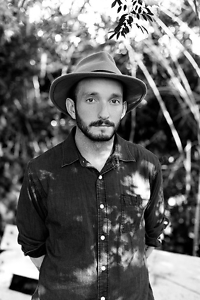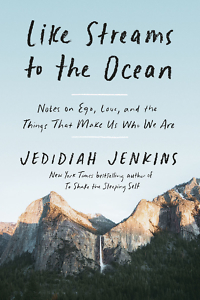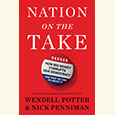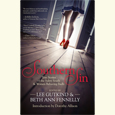Streams of Consciousness
Travel writer Jedidiah Jenkins trades in cross-continental treks to map a more personal terrain.
Like Streams to the Ocean: Notes on Ego, Love, and the Things that Make Us Who We Are, the second book by travel writer Jedidiah Jenkins, traverses territory both uncharted and familiar, as unique as it is universal: one individual’s search for meaning. In a collection of essays born out of his popular Instagram feed, Jenkins — whose best-selling debut, To Shake the Sleeping Self, redefined wanderlust for the age of social media — offers a new adventure for the restless soul in quarantine.

“So much of life is lived in magnetic attraction to undefined concepts. Love. Meaning. Fulfillment,” Jenkins muses as he listens to the story of a high school girl struggling with her identity and adopts her anxiety as his own. “What if I don’t know ‘who’ I am?’” he wonders aloud and invites the reader to wonder, too, while offering a journey with clear guideposts in the form of chapters that begin with “Ego” and end with “The Soul,” taking rest stops along the way with “Family,” “Love,” “Friendship,” “Work,” and “Death.”
Jenkins calls identity “the braided marriage of circumstance, ego and soul” and confesses that if his “nervous journal entries” from his school days to his mid-30s are to be his template, the discovery of who we are is endless. It comes as no surprise that a man who biked for over a year from Oregon to Patagonia, who wrested his sexuality out from under the confines of conservative Christian doctrine, and whose career-defining, cross-continent adventure was an attempt to free himself of the torpor of time, will assert that despite the constant “uncovering, unmasking, and construction of who I am,” he has not yet grown weary of the trip.
While the chapter titles loom large, life’s wisdom drops in tiny rivulets. As Jenkins searches for several ways to explain the endeavor he’s taken on in this collection, he settles on the journey of water:
frozen rain settling as snow on mountain peaks, melting and moving with sunlight and gravity, rolling over rocks, settling in sediment and streaming down the creek, picking up speed and breadth into a river and finally an ocean. “Life is learning to ever widen,” he concludes.
 It is in the widening of his view that Jenkins has the most to offer, the moments when he stumbles vulnerably into uncertainty and remains in the tension of the unresolved. With authentic shame and confusion, he recounts the cruelty he inflicted on his younger brother for no reason throughout their childhood and the overdue and unfinished attempt he made at apology. Despite the adoration he’s received for his adventuresome spirit, he settles into the confines of relationships between family, friends, and romantic partners and unpacks his baggage as to why these areas of his life slip through his fingers in various ways.
It is in the widening of his view that Jenkins has the most to offer, the moments when he stumbles vulnerably into uncertainty and remains in the tension of the unresolved. With authentic shame and confusion, he recounts the cruelty he inflicted on his younger brother for no reason throughout their childhood and the overdue and unfinished attempt he made at apology. Despite the adoration he’s received for his adventuresome spirit, he settles into the confines of relationships between family, friends, and romantic partners and unpacks his baggage as to why these areas of his life slip through his fingers in various ways.
While different in scope, this book feels like a companion to Jenkins’ first. Like Streams to the Ocean is a travel memoir for an audience who is stuck in place with only an Instagram feed and a list of dogging questions about the self in relation to others and what may or may not be the Other. For those of us living with existential uncertainty in the crucible of quarantine, where we cannot escape who we are or whom we hurt, Jenkins articulates how the questions we carry manifest in quiet rebellions and bland betrayals of those we profess to know and to love, including ourselves.
Yet, somehow, we end our journey more balanced than when we began it. “I don’t know much to be absolutely true,” Jenkins confesses, “but I do believe in balance. Stay rooted too long, and you could lose your wonder. Stay gone too long, and you could lose your depth.”
Beth Waltemath graduated with a degree in English from the University of Virginia and worked at both Random House and Hearst magazines before leaving publishing to attend Union Theological Seminary in New York City. A Nashville native, she now lives in Decatur, Georgia.


